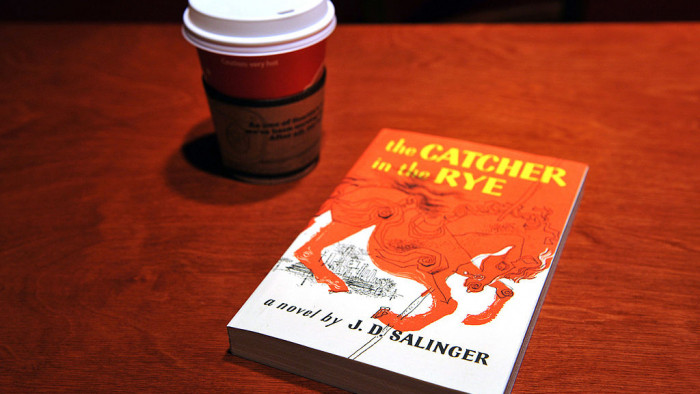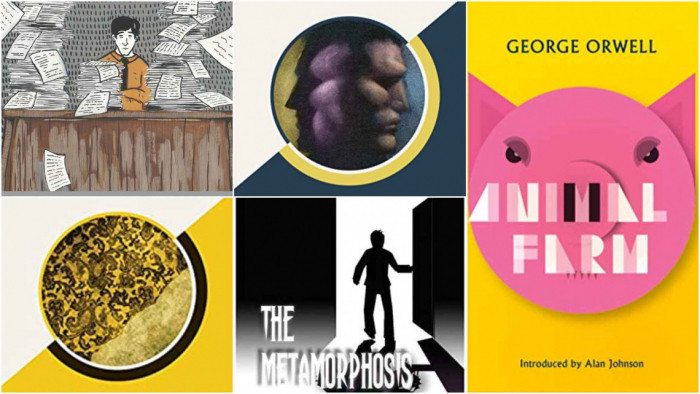The super-obese are the subject of David Whitehouse’s debut novel, Bed. Here, exclusively writing for ShortList, he ponders our preoccupation with weight
Look at your legs. Now imagine them 10 times thicker. Imagine them so thick that you can’t walk. Instead they just grind against each other when you move around restlessly in bed, like the rollers in a carwash. Imagine the weight of two sedated rottweilers on your chest. Imagine a profound and constant sadness in your mind, like grieving, but for yourself, even though you’re not yet dead. This is what it is to be super-obese. But you can’t imagine it at all.
Obesity in extremis is an unimaginable state of being. Like being a horse or flying. But it is also a possible one, unlike being a horse or flying (unless, I guess, you’re a unicorn). This is one of the reasons we are culturally obsessed with it. We are fascinated by that which is both unimaginable and, no matter how unlikely, possible. Like the coalition government, the success of The Only Way Is Essex or the very idea that anyone would have a good night out with the presenters of Top Gear, bar the presenters of Top Gear.
My own interest in people who have become so big that they can’t move began, suitably enough, in bed. Suddenly unemployed, I began to wonder what would happen if I didn’t have a reason to get out ever again. What would people think? Perhaps they’d see it as a romantic, Lennon-esque peace protest of sorts. Or maybe I’d become a Timothy Leary-style counter-cultural hero, detaching myself from the existing conventions and hierarchies in society by dropping out. Not by using acid, but in a much purer form, by literally doing nothing. Or maybe people would just think I was a lazy bastard.
THE ALLURE OF EXTREMES
This period of inertia allowed for an Olympic stint of television-watching. I immersed myself in the opiate of
the jobless and soon noticed that the TV schedules had become dominated by documentaries about people with extreme physical conditions. The documentaries were of varying levels of quality and mawkishness, but they were all equally compelling. The Man With Two Heads. The Boy Whose Skin Fell Off. Britain’s Got Talent.
I watched them all, but became increasingly drawn towards a glut of documentaries about people with extreme levels of obesity.
Half Ton Mum, Britain’s Fattest Man, Too Fat To Live. These documentaries were about people so large that their homes had been dismantled so that they could leave them. They were people so heavy that their skin had become one with the material their furniture was made from. They were people so enormous that they no longer resembled human beings. They looked like nothing I’d ever seen before. They looked like monsters. Dying monsters. They were the most extraordinary people on Earth, and I couldn’t stop looking.
“Literature suggests that our obsession with this goes back centuries,” says Dr David Haslam, a GP and leading bariatric [the treatment of obesity] physician. “Right back to the time of Hippocrates we see descriptions of conditions related to obesity… the effects on the heart, diabetes, blood pressure. It’s always been there.” Sitting in my bed, I began to write a book with one of these characters at its centre.
Bed is the life story of the family of Malcolm Ede, an eccentric child who becomes an extraordinary man that, on his 25th birthday, goes to bed without explanation and never gets out again. Over the course of the next 20 years an extravagant metamorphosis takes place and Mal becomes not just the world’s fattest man, weighing 100 stone, but a sort of celebrity for doing so. Just like the people in the documentaries.
“To get that large you have to have a unique combination of all of the worst risk factors you can have in a human body,” says Dr Haslam “You have to have the worst genetic predisposition, you have to have the worst obesogenic environment… you have to add together a number of extreme causes to be as bad as that. It is the thin end of the wedge at the far end of the scale.” Bed is a book about this tiny minority living this unimaginable state of being — to be super-obese — and our obsession with those that are. Or at least that is what I thought when I started it.
RAPT BY THE PLIGHT
I watched and I watched and I watched. In one documentary, a man weighing more than 70 stone found new and ingenious ways to have KFC bargain buckets smuggled into his high-security ward at a hospital just outside New York that specialised exclusively in the treatment of the super-obese. In another, a man who had just been lifted into a specially reinforced ambulance using industrial-strength inflatable hoists, tucked into a big bag of toast his friend had packed for the journey. All of them were masquerading as education, as warning shots to our greedy selves.
But they were all being consumed as entertainment, so much so that soon they stopped even pretending. Anyone who has ever seen Supersize Vs Superskinny, where a large person with a gargantuan appetite is forced to sit opposite a small person with none and watch them try to eat some chips without joining in, will agree. It’s pretty heinous stuff. They might as well make a show where a fat man has to run up a travelator, only to be punched in the face by a gladiator named ‘Metabolism’ at the top.
A grim, uncomfortable truth slowly dawned on me.
I was enjoying watching these documentaries because I couldn’t empathise with their subjects. It is the same reason millions of us watch them every year: because you can’t empathise with what you can’t imagine (again, see the coalition government, The Only Way is Essex and having a good night out with the presenters of Top Gear). Something deep in our subconscious allows us to hide from the horrible fact that we’re rapt by the plight of someone far less fortunate than ourselves, as though we’re not watching a man, but a squid flapping its last on a dirty beach.
We don’t feel this when we see, say, news footage of a mother stalking the remains of her flooded village with a photograph of a lost child in her hand because the pain and the sadness is tangible, laid bare. It feels somehow familiar, we have all experienced loss. But the super-obese look like no one you’ve ever met. They have played a willing part in their own destruction. Their immense suffering is locked inside a gigantic casket of rippling, sore, impenetrable flesh, hidden from the world but for the last, moist glimmer of hope in their eye.
And so Bed was not to be a book about a 100-stone man, but about those that love him. His family, his friends and his partners. Because it was love that made them human. Be it a love that was making those that feed them inexplicably continue to do so. Be it the affection with which their nurses carried out their duties of care. Be it their desire to change, to not die, because they didn’t want to leave their closest alone. This is how we should empathise. This is how we should understand them. Because they are just like us. Deep within that unimaginable state of being resides a universal, all-knowable truth. It’s too hard to be human if you’re not loved.
Bed by David Whitehouse is published on 2 June, priced £11.99 (Canongate)










